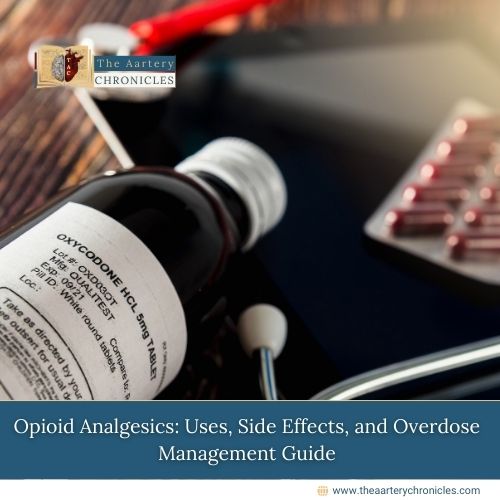

World Pharmacist Day: A Call to Address Overprescription
World Pharmacist Day
World Pharmacist Day is celebrated every year on September 25th by the International Pharmaceutical Federation to recognize and honour the crucial role of pharmacists in improving patient care and public health.
In recognition of World Pharmacist Day, I intend to highlight the pressing issue of drug overuse and overprescription. Although this day celebrates the significant contribution of pharmacists in safeguarding patient care and public health, it also offers the opportunity to talk about serious, long-term consequences that over prescription poses.
Overuse And Over prescription Of Drugs
The overuse and over prescription of drugs have become serious healthcare concerns, with long-term consequences for both individuals and society.
Overprescription refers to the practice of prescribing more medications than clinically necessary and it is surging globally.
- In recent decades, the number of prescriptions has surged globally. For instance, nearly 45.8% of adult prescription drugs were dispensed in the last month and annually 16.3 people use misused prescriptions in the U.S.
- Similarly, European and developing nations like India are witnessing a sharp rise in Overprescription.
Case of Overprescription
According to surveys, the four drug classes are frequently prescribed in the US, with their usage increasing significantly between 1999-2000 and 2011-2012. Older adults are especially likely to be prescribed these medications. For those aged 65 and older, 15-23% were taking one or more of these drugs, and 41% were taking five or more medications.
Those Drugs Belong to four major classes:
- Opioids
- Proton Pump Inhibitors (PPIs)
- Levothyroxine (LTX)
- Antidepressants
These drugs work well for their respective problem but have some drawbacks. Opioids work well for pain relief for a short time but longer use leads to sleep issues constipation and drug addiction. In older adults, long-term use can result in serious health complications and can be fatal for thousands.
Similarly, PPI long-term leads to bone-weakened, bone fractures, low calcium levels, and severe gut problems. While antidepressants lead to weight gain sexual dysfunction, etc. and Levothyroxine leads to bone fractures and heart issues.
Resistance has already developed against our most efficient drugs—antibiotics and steroids. Before it's too late, let's start using them with caution
Dr Rubal Garg
Why is this concerning?
Impact on Individual Health: When people take too many medications, especially when they do not need them, it can lead to serious health issues. Some drugs can have harmful side effects, and taking multiple medications at once increases the chance of dangerous drug interactions. Over time, people may also become dependent on certain drugs, making it harder to stop using them. In the case of antibiotics, using them too often can make them less effective, which is a big problem when they are needed.
Impact on Society: On a larger scale, overprescribing contributes to problems like drug addiction, especially with painkillers (like opioids) and antidepressants. This creates a public health crisis, as we have seen with the opioid epidemic in places like the United States. People struggling with addiction may face social and financial difficulties, which can have a ripple effect on families, communities, and the workforce.
Impact on Healthcare Systems: Overprescription also puts a heavy burden on healthcare systems. Treating the side effects and complications from unnecessary medications costs billions every year. In addition, the overuse of antibiotics is making it harder to fight infections, leading to longer hospital stays and more expensive treatments in the future and making it harder to provide care for everyone.
The overuse of drugs is often associated with a cascade of issues including the development of tolerance to drugs followed by dependence on the drug. It is, therefore, very essential to use drugs judiciously, that too under strict medical supervision.
Dr Aarti NehraMBBS, MMST
Overprescription: The Doctor-Patient Dynamic
Overprescribing can occur due to several reasons. Patients often want a quick solution when they are feeling unwell, and medications can seem like the fastest fix.
This is especially true with certain types of medications like antibiotics, painkillers (especially opioids), and antidepressants. Many of these are prescribed even when they may not be necessary, leading to potential harm in the long run.
Some examples include:
- Montelukast is overprescribed among adults and children with rhinitis but is not recommended for its first line therapy drugs even if it is used for Asthma for long-term use.
- Steroids like prednisolone dexamethasone, betamosone, and many more are prescribed for minor problems.
- Prescription of amoxicillin and amoxyclave is the best choice of antibiotics for adults and children.
- Antidepressant is commonly prescribed for older adults.
The overuse and overprescription of drugs pose a serious threat to public health, as unnecessary medications expose patients to harmful side effects and contribute to broader crises like antibiotic resistance and the opioid epidemic. Prescribing drugs without clear necessity or relying on quick pharmaceutical fixes not only inflates healthcare costs but also fosters long-term dependencies. Antibiotics are often prescribed for viral infections like colds and the flu, despite their ineffectiveness against viruses, leading to the rise of resistant bacteria. Opioid painkillers are another major concern, with overprescription driving widespread addiction and dependence. Similarly, psychotropic drugs like anti-anxiety medications and antidepressants are frequently prescribed without considering non-pharmacological interventions, further contributing to long-term reliance. To address this growing issue, healthcare providers must adopt more responsible prescribing practices, while patients should recognize that not every symptom requires medication—alternative treatments can often offer safer, more effective solutions.
Dr Anjali Singh
Does Over-the-Counter Lead to Overuse
Many people often go straight to a pharmacist instead of visiting a doctor when they have minor health issues like coughs, colds, allergies, pain, fever, heartburn, diarrhea, or skin problems causing Normalization of “Pill Culture” Over time, this reliance on medication for minor issues has created a “pill culture,” where taking drugs has become normal.
Sometimes, when people have a fever or cold, doctors quickly prescribe antibiotics like Azithromycin without checking the real reason. And for sleeplessness, they might just give Alprax without digging deeper. Patients often ask for the same medicines they’ve used before, and family members use them too. But what they don’t realize is that overusing these medications, like antibiotics, steroids or Alprax, can harm their kidneys and overall health. It’s important to understand that just because something worked once doesn’t mean it’s safe to use repeatedly.
Vikas SharmaPharmacist, Rajiv Gandhi Cancer Institue and Research Center, New Delhi
In most countries, some medicines can be bought over the counter (OTC) without a doctor’s prescription. These are called Over-the-Counter (OTC) Medicines, which means they are legally allowed to be sold by pharmacists without a prescription.
In India, the term “OTC” does not have an official definition, but the rule is that a medicine is considered OTC unless it is specifically labeled as a prescription-only drug. Buying OTC medicines is usually quicker and cheaper than seeing a doctor, giving people easy access to basic healthcare.
Role of Big Pharma in Promoting Overuse of Medications
Big Pharma pushes people to use more medications by advertising drugs. They also influence laws to make it easier for doctors to prescribe medicine, even for minor problems. In the end, their focus on making money can sometimes come before what is best for patients, leading to the overuse of unnecessary drugs.
E.g., In, 2022, in India, the makers of Dolo tablets were reported to have given freebies worth around Rs 1,000 crore to doctors to encourage them to prescribe their 650 mg tablets, which are used to reduce fever and inflammation.
Solution for Overprescriptions and Overuse
For Doctors:
- Focus on caring for the Patient, not just the disease. Consider their overall well-being, habits, and lifestyle to provide better treatment.
- Stay updated on treatments that do not involve medications, like lifestyle changes, therapies, or natural remedies.
For Patients:
- Learn about the dangers of taking too many medications and the risks involved.
- Ask your doctor for a second opinion and talk about other ways to treat your condition that do not always require medicine.
For Pharmacists:
- Help patients understand the risks of overusing drugs and offer advice on safe medication use.
- Support patients by discussing non-drug treatments when appropriate and encourage them to ask questions about their prescriptions.
For Policy Makers:
- Strengthen the rules on how drug companies promote their products to the public.
- Make sure there are stricter guidelines for prescribing medications.
- Encourage the use of electronic systems to track prescriptions and reduce unnecessary drug use.
Conclusion
Overusing and overprescribing drugs is a serious problem that affects individuals and society. It can harm people’s health, lead to addiction, and increase healthcare costs. Instead of relying on medications for every issue, we need to shift our focus towards preventive care, healthier lifestyles, and other non-medication treatments. Doctors, patients, and policymakers need to work together to reduce unnecessary drug use, making sure that medicines are used only when they are needed and in the safest way possible.
- Prescription Drug Abuse Statistics - NCDAS. (2024, May 2). NCDAS. https://drugabusestatistics.org/prescription-drug-abuse-statistics/
- What is the scope of prescription drug misuse in the United States? | National Institute on Drug Abuse. (2023, December 14). National Institute on Drug Abuse. https://nida.nih.gov/publications/research-reports/misuse-prescription-drugs/what-scope-prescription-drug-misuse
- Alduhishy, M. (2018). The overprescription of antidepressants and its impact on the elderly in Australia. Trends in Psychiatry and Psychotherapy, 40(3), 241–243. https://doi.org/10.1590/2237-6089-2016-0077
- National Heart, Lung, and Blood Institute (US). (2007, August 1). Section 4, Stepwise Approach for Managing Asthma in youths ≥12 years of age and adults. Expert Panel Report 3: Guidelines for the Diagnosis and Management of Asthma - NCBI Bookshelf. https://www.ncbi.nlm.nih.gov/books/NBK7222/
- Ericson-Neilsen, W. and Kaye, A.D. (2014) Steroids: Pharmacology, complications, and practice delivery issues, Ochsner journal. Available at: https://www.ncbi.nlm.nih.gov/pmc/articles/PMC4052587/
- Implications of Overprescription of Antibiotics: A Cross-Sectional study. (n.d.). https://www.ncbi.nlm.nih.gov/pmc/articles/PMC6555336/









